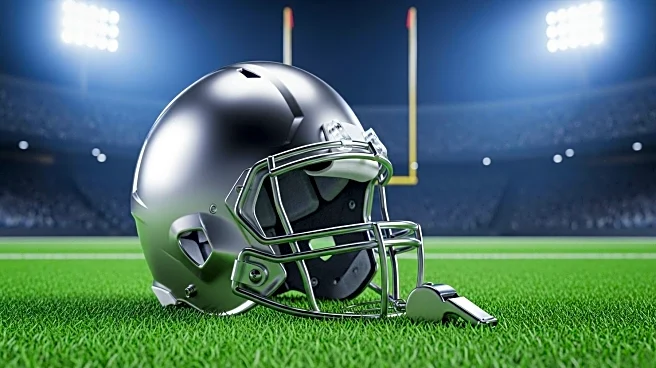What's Happening?
The Philadelphia Eagles' use of the 'tush push' play has sparked controversy following their victory over the Kansas City Chiefs. Replays indicated that the Eagles' offensive line frequently jumped early, leading to false starts that were not penalized. The NFL has responded by instructing officiating crews to be more vigilant in calling false starts related to this play. Despite speculation that this could lead to the end of the formation, the Eagles continued to use the play without penalties in their subsequent game against the Los Angeles Rams. The 'tush push' involves the quarterback being pushed from behind by teammates to gain yardage, a tactic the Eagles have mastered, achieving a 91.3% success rate over the last three seasons.
Why It's Important?
The controversy surrounding the 'tush push' highlights ongoing debates about fairness and safety in the NFL. Critics argue that the play gives the Eagles an unfair advantage and raises injury concerns due to the intense physical contact involved. The NFL's decision to scrutinize the play more closely could impact the Eagles' strategy and influence future rule changes. The play's high success rate has prompted discussions about its legality and the need for clearer officiating guidelines, affecting teams' competitive dynamics and potentially leading to broader changes in league rules.
What's Next?
While the 'tush push' has not been banned, the NFL's increased scrutiny may lead to more penalties for false starts, affecting the Eagles' ability to use the play effectively. The league's decision to crack down on the formation could act as a de facto ban if officiating crews consistently penalize it. The Green Bay Packers previously attempted to ban the play, but the proposal failed to pass. Future league meetings may revisit the issue, especially if influential voices within the NFL continue to push for its prohibition.










